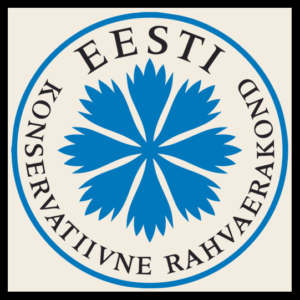The Conservative People’s Party of Estonia (EKRE) is the most successful nationalist party in the Baltic states. It was founded in 2012 through a merger of the agrarian People’s Union and the nationalist Estonian Patriotic Movement. Between 2019-21 EKRE participated in a coalition government with the Centre Party.
EKRE employs typical populist rhetoric, claiming that the “liberal elite” is working the against the “real interest of the people”. In an interview with The Guardian, MP Ruuben Kaalep summed up his party’s mission as to fight against “native replacement”, “the LGBT agenda” and “leftist global ideological hegemony”. Consequently, EKRE is strongly nationalist and opposes even small levels of immigration, arguing that Estonia should be a country only for ethnic estonians. At the same time, it has shown an ambiguous attitude towards the ethnic Russian minority since it also wants to attract their votes, many in that group being more conservative and eurosceptic. EKRE therefore avoided taking a clear position against Russia following the war in 2022. The party was accused of being infiltrated by Russian oligarchs ahead of the 2019 EP elections.
EKRE is strongly conservative on social issues, including a negative stance on HTBQ-rights. Its party leader, Mart Helme, had to resign as interior minister after an interview where he stated that he did not have a friendly view on homosexuals, who he thought would better emigrate to Sweden. A few years earlier, he claimed in a TV interview that blacks were not welcome in his Estonia: “I want Estonia to be a white country”. EKRE politicians have often mentioned Fidesz and PiS as inspiration, and both father and son Helme claimed that Joe Biden’s election victory in 2020 was the result of electoral fraud. Mart Helme also said that “partial” journalists should be fired from public service, and after EKRE took place in the government, well-known public service journalist Ahto Lobjakas quit his job, claiming that although he was not fired, he felt he had to choose between self-censorship or leaving.
On economic matters, EKRE takes a centrist position within the Estonian political landscape, frequently making populist pledges for lower taxes along with expanded welfare spending. EKRE is sceptical towards Nato and has suggested holding a new referendum on Estonia’s membership in the EU, although it denies it wants Estonia to leave the EU in the current situation. Early in 2024, EKRE is polling around 20 percent, and is currently the second largest party.






